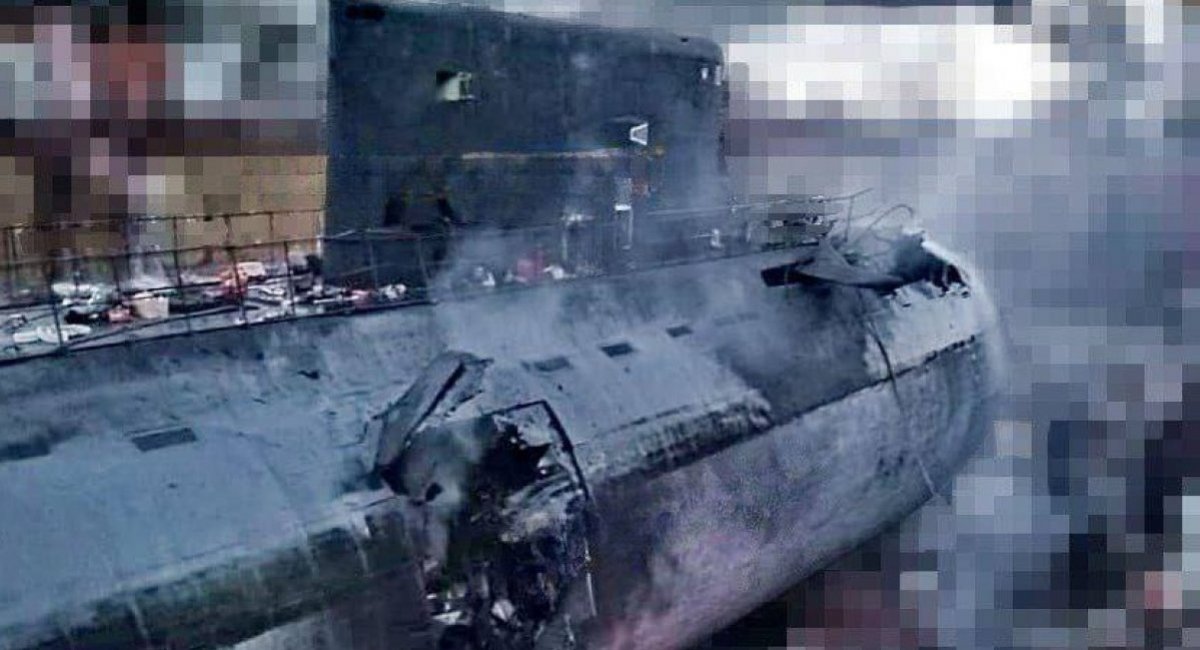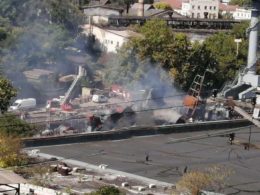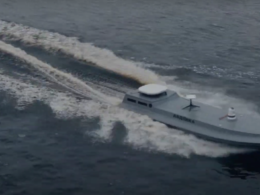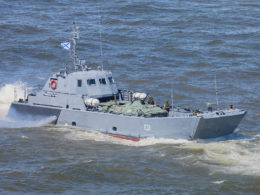Ukraine's recent attack on the Russian submarine “Rostov-na-Donu” in Sevastopol, occupied Crimea, shows that Russia has no safe possibility to repair its submarines in the Black Sea, according to Defense Express.
Ukraine’s ongoing efforts to deplete Russian naval defenses targeted the submarine in Sevastopol, which was valued at $300 million and capable of launching Kalibr missiles. This operation followed previous strikes that had already forced Russia to relocate much of its Black Sea Fleet.
Defense Express argues that Russia now faces a strategic dilemma: it lacks safe facilities to repair its submarines in the Black Sea region. With Türkiye closing the Bosphorus Strait, Russian submarines cannot leave for repairs elsewhere, and alternative repair sites in Novorossiysk or Kerch are either ill-equipped or within striking distance of Ukrainian forces.
According to Defense Express, the “Rostov-na-Donu” was hit for a second time in June 2024 while undergoing repairs at the 13th Ship Repair Plant in Kilen Bay in occupied Sevastopol. This attack comes after an initial strike in September 2023 when the submarine was in dry dock at the Sevastopol Marine Plant.
This situation affects not just the “Rostov-na-Donu” but potentially four other Russian submarines in the Black Sea: "Krasnodar", "Veliky Novgorod", "Kolpino", and "Alrosa". Defense Express notes that these vessels were operating intensively, requiring more frequent maintenance than usual.
While the immediate impact on Russian naval operations may not be apparent, Defense Express suggests that the long-term consequences could be significant. The report concludes that these submarines may eventually face operational limitations or even underwater accidents without proper maintenance.
Related:
- Ukraine says it sank Russian submarine, damaged four S-400 launchers in Crimea
- Ukraine’s Navy: Russia deploys three submarines with cruise missiles in Black Sea for first time
- Ukrainian attack on Crimea leaves Russian warship and submarine in ruins, satellite image confirms
- Ukraine’s deputy foreign minister: one German submarine will kick Russian fleet out of Black Sea




